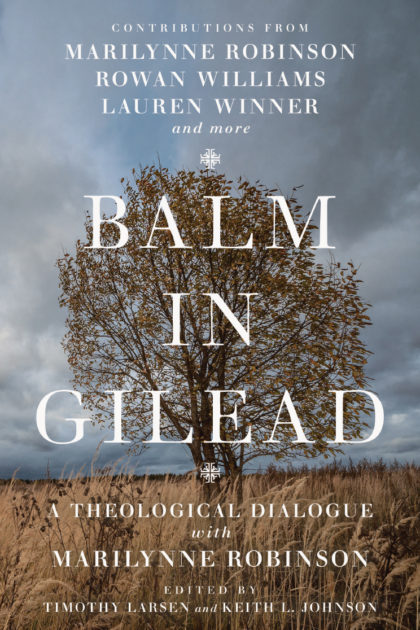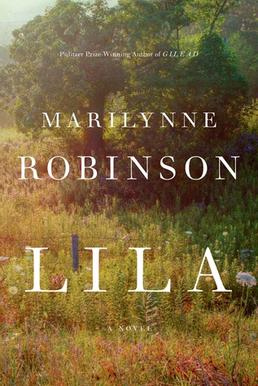
Marilynne Robinson’s novels are meant to become transparent as we read them. The stories are not ends in themselves. They are windows that allow us with a metaphysics, a description of the being of the world and the people within it. To read these novels is to be called to a conversion, not only of the heart and soul, but especially of the mind. Robinson wants us to recognize that we have squandered an intellectual inheritance that took our ancestors centuries to build. She calls us to repent of embracing the wisdom of an age that has left us isolated and fearful. She asks us to come home, to embrace an old way of being, and to recognize that the world and our neighbors are radiant with the love of God. “A person can change,” Lila says. “Everything can change.” . . .
Robinson is more than simply a novelist who converts her readers to a new way of seeing through stories. She is also a theologian who explains what this conversion means. She develops this primarily in her essays. — Keith L. Johnson, “The Metaphysics of Marilynne Robinson,” 66.
Reflection:
- As with Healing…Fiction…Connectedness, Praise that pours forth from the lips of . . ., and Great Theology, Teachableness, & John Calvin, set aside a time of “rest” to read, reflect upon, and prayerfully consider the Balm in Gilead quote.
- What novel or series of novels provides “windows” to your life, family, community / communities, and / or vocation? Have you (and / or some of your friends) been invited by the Lord to “come home” through a novelist? What is unique about a novel written through the lens of a well-developed Christian perspective on daily life?
- In Marilynne Robinson’s Gilead series I was struck by the variety of storytelling platforms set in the fictional town of Gilead, Iowa.
- Gilead: an aging father’s letter/journal/memoir (1956) to a young son so that he can pass along care through the window of several generations of family life, history and theological dialogue.
- Note: The father (John Ames) is a Congregationalist minister whose father and grandfather were previous Congregationalist ministers in Gilead. A significant divide in the family was caused by differing responses to racial issues (extending back 100 years). The epistolary novel format offers a dynamic interaction between the past, present, hopes for the future, and approaches to interacting with one’s context / relationships.
- Home: the emotionally demanding narration of a family’s interaction with a “Prodigal Son,” told in many ways through the lens of a younger sister (Glory) who is caring for the aging father when the son finally comes home. The question of who is welcoming (even “saved”) and who is not among one’s family (natural and the people of God) challenges the reader.
- Note: The head of the household is a Reverend Robert Boughton, the best friend of John Ames. The “Prodigal Son” is John Ames Boughton, named after his godfather (John Ames). He goes by the nickname “Jack.” The book is complementary to and helps fill out Gilead. I found the significant divide in families, towns, and a nation caused by differing responses to racial issues (which involve followers of Christ loving their neighbor in a godly manner) underscoring the importance of reading Gilead then Home. But I can imagine Home being a very engaging book to pick up first, inspiring one to read Gilead and / or Lila.
- Lila: an outsider with a difficult past slowly enters the Christian community in a small town. She even marries the aging Congregationalist minister John Ames! Passages from Ezekiel are woven throughout Lila’s time of personal reflection on her faith journey.
- Note: This prequel opens yet another window to how the “story” is told and people interact not only with one-another, but also with the Lord over time. “A person can change. . . . Everything can change.” The main characters in the three novels are compelling comparisons of people on the journey of faith, pressing the reader to prayerfully consider their relationship not only with God, but also with those created in the image of God in their community / communities.
- Gilead: an aging father’s letter/journal/memoir (1956) to a young son so that he can pass along care through the window of several generations of family life, history and theological dialogue.

[John Ames:] “Are you planning to copy that whole book [Ezekiel]?”
[Lila:] “Only the parts I like.”
He nodded. “Sometime I’d like to know which parts you like.” He said, “I don’t want to intrude, of course.” It would be interesting to me. From the point of view of interpretation. I’d like to know your thoughts.”
She said, “I’m still thinking. Maybe I’ll tell you when I’m done.”
He laughed. “I’ll look forward to it. But you might never get done, you know. Thinking is endless.”
“It’s true I been taking my time about it.”
“There’s no hurry. Boughton and I have been worrying the same old thoughts our whole lives, more or less. There’s been a lot of pleasure in it, too.”
“Well, I been trying to work something out. Trying to make up my mind about something. So I’m going to want to finish with it.”
After a minute he said, “I’m trying not to ask what it is. You have every right to keep your thoughts to yourself. It’s clear enough that that’s what you want to do. So I’m not going to ask.” He laughed. “This is a real test of my character.” — Marilynne Robinson, Lila, 127.
If you have not interacted with one of these Marilynne Robinson’s books, I encourage you to do such when time permits this summer. Stay tuned for more Read…Quote…Reflect from Balm in Gilead. To God be the glory!
About the author:
Tom enjoys daily conversations regarding living out the Biblical Story with his wife Theresa and their four girls, around the block, at Elizabethtown Brethren in Christ Church (where he teaches adult electives and co-leads a small group), among healthcare professionals as the Northeast Regional Director for the Christian Medical & Dental Associations (CMDA), and in higher ed as a volunteer with the Emerging Scholars Network (ESN). For a number of years, the Christian Medical Society / CMDA at Penn State College of Medicine was the hub of his ministry with CMDA. Note: Tom served with InterVarsity Christian Fellowship / USA for 20+ years, including 6+ years as the Associate Director of ESN. He has written for the ESN blog from its launch in August 2008. He has studied Biology (B.S.), Higher Education (M.A.), Spiritual Direction (Certificate), Spiritual Formation (M.A.R.), Ministry to Emerging Generations (D.Min.). To God be the glory!
